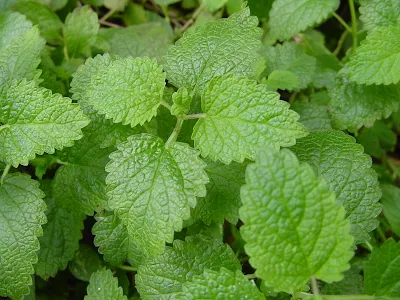Lemon Balm The Scent That Says Fresh
 |
| Spring growth of lemon balm |
Easy to Root and Grow
It does well in partial shade, preferring well-drained soil. Keep lemon balm moist. I prefer to keep mine near downspouts and around outdoor faucets. Lemon balm is easy to grow from stem cuttings rooted water. It's also a prolific self-seeder.
Try A Relaxing Lemon Balm Tea
Lemon balm tea has sedative properties, as does its essential oil when used in aromatherapy. (See note below.)
Lemon Balm Is a Pet Friendly Cleaner
One of my favorite uses for lemon balm is as a floor cleaner. I have pets, so when I clean the kitchen floor I try to avoid harsh chemical cleaners. I make up a cleaning solution of three-parts water to one-part white vinegar. To this I add a few sprigs of crushed lemon balm. In some recent studies lemon balm has displayed mild antibacterial properties, so it makes a good accompaniment to the white vinegar and masks the vinegar smell. I let the lemon balm infuse for a few days, and then remove and discard it. The resulting cleaning solution can be kept in a spray bottle for weeks.
To learn more about this useful culinary, medicinal and craft herb visit: How to Grow Lemon Balm
Special Note: If you are currently on thyroid medication, avoid taking lemon balm as it may cause interaction problems with your prescribed medications.

Comments
Post a Comment
Share some ideas.